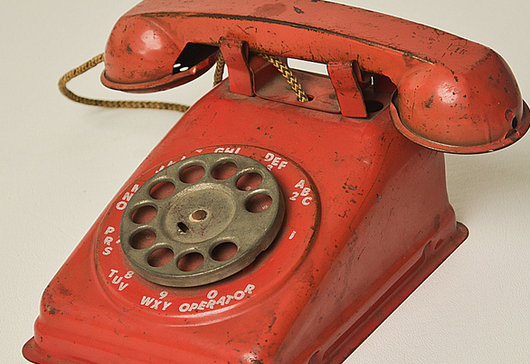AT&T, Verizon Must Pay To Investigate Landline Service Quality Problems In California
The California Public Utilities Commission plans to get to the bottom of why Verizon and AT&T phone service isn’t consistent in the state by making it clear that the state hasn’t forgotten a years-old order requiring that both providers conduct and finance investigations into their infrastructures.
The Commission once again directed the companies to provide financing for an independent consultant to begin an analysis of their networks in the next three months following the determination that the performance of AT&T and Verizon networks has “consistently failed to meet existing service quality metrics.”
The decision [PDF] comes nearly four years after the commission first recommended such an investigation following a series of widespread telecommunications outages on the networks back in the winter of 2010 and 2011.
At that time, CPUC found that neither provider was restoring services within its standardized time limits, despite the fact smaller network providers were able to meet the required restored service time frame.
Two years later, in February 2013, the CPUC ordered the companies to conduct and pay for investigations, saying it was necessary “to gauge the condition of carrier infrastructure and facilities and ensure the facilities support a level of service consistent with public safety and customer needs.”
However, both AT&T and Verizon objected to taking financial responsibility of the studies, and to date no analysis has been conducted.
AT&T claimed in a response [PDF] to CPUC’s decision earlier this year that the Commission’s out-of-service metric was “inherently flawed and the allegations of substandard performance are flatly wrong.”
The company said it had submitted “extensive and unrefuted” evidence that prove the metrics were out of date based on the declining use of traditional landline phones.
Likewise, Verizon argued [PDF] that both companies’ networks were reliable and healthy, noting that the Commissions’ determination that delaying a study would be harmful to consumers is wrong.
Still, CPUC said the arguments from the companies misunderstand the logic of the study and provide no reasoning why the investigation should not go forward as ordered.
“Given the absence of relevant circumstances or new evidence, we find that it would not be appropriate to further defer the ordered study,” the CPUC decision states. “Further delay could undermine the integrity of the regulatory process by suggesting that if enough time passes without action on a Commission order, that order can be disregarded.”
Under the decision, Commission staff must report on collecting funding from the companies within three months, and provide a status report on progress toward completion of the investigation within six months.
Want more consumer news? Visit our parent organization, Consumer Reports, for the latest on scams, recalls, and other consumer issues.


